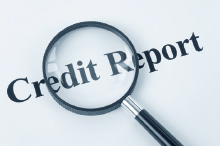Tech Tip: Protect Your Identity
TECH TIP PROTECT YOUR IDENTITY

Gone are the days when people stashed their money under a mattress and called it a day. In today’s credit- and tech-driven world, being financially responsible includes protecting yourself from identity theft. In this insidious and increasingly common crime, someone assumes your identity, secretly opens up accounts in your name, and has the bills sent to another address.
1 THE PROBLEM
Identity fraud is on the rise, and you’re not sure how to protect yourself. The 2013 comedy Identity Thief tells the story of an identity theft victim (played by Jason Bateman) who confronts the thief (played by Melissa McCarthy). But if identity theft happens to you, it’s not so funny.

2 THE FIX
To thwart cybercrooks, you have to stay a few steps ahead of them.
3 HOW TO DO IT
Be password savvy. The more sensitive the information, the stronger your password should be. Aim for eight to fourteen characters, including numbers, both uppercase and lowercase letters, and if allowed, a few special characters like @ and #. Never use an obvious number like your birthday or anniversary. Don’t use the same usernames and passwords for every site. Try to change the passwords to your online credit card or bank account at least once a year. If you must keep a written record of your usernames and passwords, keep the list in a secure place at home, not in your wallet.
Beware of scams. Lots of them are out there. A few tips:
Be sure to research a company or organization before submitting your résumé.
When communicating with a potential employer, don’t e-mail any personal information (social security number, bank details, credit or debit card numbers, passwords, etc.) that could put you at risk of identity theft.
Don’t answer questions about vital personal information over the phone if you didn’t originate the call.
Don’t reply to e-mail, pop-ups, or text messages that ask you to reveal sensitive information.
Don’t send sensitive data by e-mail. Call instead and deal only with businesses you trust.
Never click on links in unsolicited e-mails or paste URLs or lines of code into your browser bar. If an offer sounds too good to be true, it probably is.

Keep tabs on your credit report. Regularly reviewing your credit history pays off in major ways. It alerts you to any new accounts that might have been opened in your name. It also lets you catch unauthorized activity on accounts that you’ve closed or haven’t used lately.
Note: Everyone is entitled to one free credit report a year from each of the three major credit bureaus. Make sure to order yours from the Web site www.annualcreditreport.com. Sites offering “free” credit reports usually require paid memberships for additional credit products, so save your money and use it to pay your bills instead!
PERSONAL BEST
Your online identity is as important as your financial one. Choose secure passwords for your social networking sites and course sites where your grades might be listed. While you’re at it, limit the amount of personal information available on your Facebook profile, ratchet up your security settings, and accept friend requests only from people you know. Remember that even Facebook creator Mark Zuckerberg’s Facebook page was once hacked. It’s wise to try to maintain a little mystery.